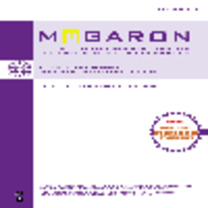Olimpiyat yerleşkeleri tasarımında bir girdi olarak sürdürülebilirlik
Olimpiyat oyunlarına ev sahipliği yapmak 1960’lardan bu yana bir “kentsel gelişim” fırsatı olarak görülmektedir. Kent içine inşa edilen spor tesislerinin oyunlar sonrası kullanımı, olimpiyat köylerinin sosyal konut alanları olarak kentli ihtiyacına cevap verebilmesi ve kentlinin yaşam alanları ile iş alanları, spor ve kültür tesislerine rahatlıkla ulaşımını sağlayacak alt yapı yenilemeleri, ekonomik açıdan oyunların organizasyonunun başarıyla sonuçlanmasının göstergelerinden sayılabilirler. Ancak tüm bu yatırımların kente ve kentliye olumlu yönde geri dönüş yapabilmesi için iyi bir kent planlaması yapmadan sadece yeni yapılaşma alanları tasarlamak yetmemektedir. Özellikle 1980’li yıllardan bu yana sürdürülebilirlik kavramı üzerine yapılan ulusal ve uluslararası ölçekteki çalışmalar göstermiştir ki, sürdürülebilir bir kentleşme, sürdürülebilir bir kalkınma planlaması ile mümkündür. Bunun için de ekonomik, sosyal ve çevresel kalkınmanın sağlanması gerekmektedir. Bu bakımdan son yıllardaki olimpiyat şehirleri incelendiğinde, bu anlayışın onların gelişim planlarına nasıl yansıdığını görülebilmektedir. Yıllar içinde sürdürülebilir kalkınma yaklaşımında elde edilen ilerlemelerle, oyunları bir tanıtım ve gelişim fırsatı olarak gören ev sahibi kentlerin, gelecek nesilleri düşünen çevreci ve sosyal değerlere karşı daha duyarlı eylemlere yöneldikleri sonucuna ulaşılmıştır.
Sustainability as an input for the design of olympic Villages
Since the 1960s, hosting the Olympic Games has been seen as an opportunity to create urban development. The post- Games use of sport venues, the fulfillment of a city’s housing needs by using Olympic Village buildings and the renewal of transport and other infrastructure that accompanies hosting of the Games may be considered indicators for the success of the International Olympic Games. But the city and its citizen do not benefit from these investments in the design of new structures if that design is not carried out in the light of wellplanned urban development projecting. Local and international studies on sustainability, particularly since the 1980s, have shown that sustainable urbanization is only achievable with sustainable development planning. Therefore economic, social and environmental development needs to be provided. If the last Olympic cities are examined in relation to this aspect, it will be seen that an understanding of such factors is reflected in their development. Throughout the history of the modern Games host cities have considered them as an opportunity for development, but cities are now heading towards the implementation of more sensitive actions for the future generation, social and environmental values with the improvement in the approach of sustainable development.
___
- Coaffee, J., (2007), Urban Regeneration and Renewal. J. R. GOLD içinde, Olympic Cities.
- Commission of the European Communities. (1998), Sustainable Urban Development in the European Union: A Framework for Action. Brüksel.
- Philemon, Politis & Anninos. Coubertin içinde, Philemon, Politis & Anninos (s. Part 2, p. 98-99, 108-109).
- European Environment Agency, (1995), PROPOLIS Project Final Report. http://www1.wspgroup.fi/lt/propolis/PROPOLIS_ Final_100204.pdf.
- Flvybjerg, B., Bruzelius N., Rothengatter, W., (2003), Megaprojects and Risk: An Anatomy of Ambition. Cambridge: Cambridge University Press.
- Furrer, I., (2002), Sustainable Olympic Games A Dream or A Reality. Bollettino della Societa Geografica İtaliana, Serie XII, Vol: 4.
- Gardiner, E.N., (1930), Athletics of the Ancient World. Oxford: Clarendon Press.
- Gladwin, T., Kennely, J., Krause, S.T., (1995), Shifting Paradigms for Sustainable Development: İmplications for Management Theory and Research. Academy of Manegement Review Vol: 20, No: 4 .
- Gold, J.R., Gold, M.M., (2007), Athens to Athens: the Summer Olympics, 1896-2004. J. R. Gold içinde, Olympic Cities (s. chapter 2 p. 18-19).
- International Olympic Committee Sport and Environment Commission., (1992), Olympic Movement’s Agenda 21 Sport for Sustainable Development. Lausanne: IOC.
- IOC., (2008), The Olympic Games of the Antiquity. Lozan, İsviçre: International Olympic Committee.
- Jolly, R., (2006), The Modern Olympics: an overview. www. aph.gov.au/library: Parliament of Australia Department of Parliamentary Services.
- Kaltsas, N., (2004), Olympia. Atina: Archaeological Receipts Fund Directorate of Publications.
- Kotynsky, E.J., (2006), The Athletics of the Ancient Olympics: A Summary and Research Tool.
- Lambros, S.P., (1896), Die Olympischen Spiele. Leipzig: Central Committee in Athens.
- Lee, H.M., (1988), The First Olympic Games of 776 B.C. W. J. Raschke içinde, The Archaeology of the Olympics: the Olympics and other festivals in antiquity (s. p. 114). Madison, Wisconsin: Univ. of Wisconsin Press.
- Mallon, B., (1998), The 1896 Olympics Games, Results for All Competitors in All Event, with Commentary. Jefforson, North Carolina, and London: Mc Farland & Company, Inc., Publishers.
- Museum, T.B., The Olympic Games in Ancient Greece, Information for Teachers. London, England.
- Owen, K., (2001), The Local Impacts of the Sydney 2000 Olympics Games: Processes and Politics of Venue Preparation. Sydney: Centre for Olympic Studies, University of New South Wales.
- Pausanias. (M.S. 2 yy). Description of Greece.
- Ph., W.G., (1999), Sharing the Spirit? Sociopatial Polarisation and Expressed Enthusiasm for the Olympic Games. Elmsford: Pacific Tourism Review, Vol: 3, s. 173-84.
- Roper, T., (2002), The Sydney Olympics and their İmpact on Development, Cities’ Expriences: the İmpact of Major Events on the Development of Large Cities. World Association of Major Metropolises, Metropolis.
- Synadinos, P., (2001), Post Olympic Use: A picture of the Future. Olympic Review 27, 39-41.
- WWF Greece. (July 2004), Environmental assessment of the Athens 2004 Olympic Games. WWF.
- Young, D.C., (1996), The Modern Olympics, A Struggle for Revival. Johns Hopkins University Press.
- Zarnowsky, F., (1993), A Look At The Olympic Costs. International Journal of Olympic History, Vol: 1, No: 2.
- ISSN: 1305-5798
- Yayın Aralığı: 4
- Başlangıç: 2006
- Yayıncı: Kare Yayıncılık
